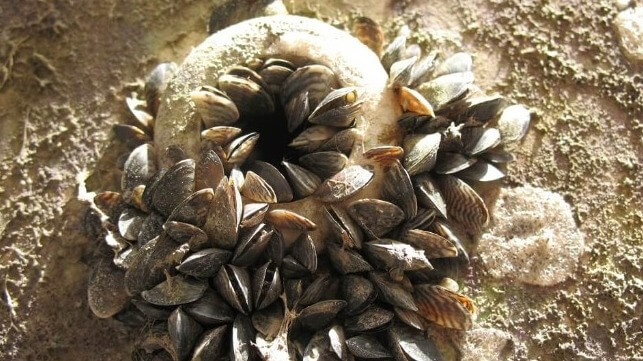Report: Invasive Species Cost Humanity More Than $400 Billion a Year

A new landmark survey by the Intergovernmental Platform on Biodiversity and Ecosystem Services (IPBES) has concluded that invasive species - including marine invasives like the zebra mussel and the lionfish - cost humanity an estimated $423 billion per year. Marine invasive species account for an estimated 10 percent of the impact, but they are of particular concern because they are extremely difficult to eradicate once established along a new coastline. Freshwater species account for an additional 14 percent.
According to IPBES, invasive species (terrestrial and aquatic) have contributed to 60 percent of all known global species extinctions in the modern era. The overwhelming majority (85 percent) of their effects on people are negative - but people are the primary cause of their transport and establishment. Driven by trade and travel, the economic impact of invasive species has been quadrupling every decade.
"When imported species run rampant and unbalance local ecosystems, indigenous biodiversity suffers. As a result, invasive species have become one of the five horsemen of the biodiversity apocalypse that is riding down harder and faster upon the world," said Inger Anderson, head of the UN Environment Programme. "While the other four horsemen – changing land- and sea-use, over-exploitation, climate change and pollution – are relatively well understood, knowledge gaps remain around invasive species. The IPBES Invasive Alien Species Report is a welcome effort to close these gaps."
For international shipping, the report's recommendations are almost exclusively in transport monitoring and prevention, as exemplified by the Ballast Water Management Convention. Infestation "pathway management" is by far the most effective method for control, according to IPBES, and the reviewers could not find many instances in which eradication efforts have been successful once a new invasive is established in a coastal environment. (Australia managed to eradicate a zebra mussel infestation in 1999 by closing and sterilizing an entire harbor with 6,000 tonnes of copper sulfate, but there are few examples in which eradication has worked along an unenclosed coastline.)
"Prevention and preparedness are the most cost-effective options and thus crucial for managing the threats from invasive alien species," found IPBES. "Prevention is particularly critical in marine and connected water systems, where most attempts at eradicating or containing invasive alien species have mostly failed."
Ballast water management regulations are a major step forward, according to IPBES.
"While the global efficacy of ballast water management cannot be assessed yet, there is evidence that it has reduced invasive alien species introductions in the Great Lakes of North America: between 1959 and 2006, one new alien species was discovered every seven months, but there was an abrupt shift (85 per cent decline) in the number of newly established alien species following the implementation of the ballast water regulations by Canada and the United States of America in 2006 and 2008 respectively," the reviewers found.

that matters most
Get the latest maritime news delivered to your inbox daily.
However, there is still more to be done. An estimated 70 percent of marine invasive infestations are connected to biofouling on the hull, which is not currently addressed by international regulation. In New Zealand, authorities estimate that biofouling is responsible for all but three percent of local problems with marine invasives, and hull fouling is tightly controlled by national laws.
Biofouling is on the IMO's regulatory agenda. The agency published non-binding guidelines on biofouling 12 years ago, and an estimated one-third of shipping companies now take voluntary action to address fouling between drydockings, according to a 2023 survey by Lloyd's Register and Jotun.
